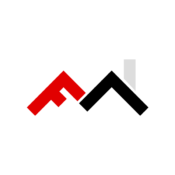When it comes to creating an energy-efficient and comfortable home, insulation plays a vital role. Proper insulation helps maintain a consistent indoor temperature, reduces energy consumption, and lowers utility bills. However, choosing the right type of insulation for your home can be challenging with so many options available. In this blog post, we’ll explore some of the best types of home insulation, along with their respective pros and cons. Let’s dive in!
Fiberglass Insulation:
Pros:
Cost-Effective: Fiberglass insulation is one of the most budget-friendly options available, making it an attractive choice for homeowners on a tight budget.
Wide Availability: Easily accessible and can be found in most home improvement stores.
Good Thermal Performance: Provides decent thermal resistance and helps maintain indoor comfort.
Cons:
Prone to Air Leaks: Fiberglass insulation can settle over time, leaving gaps that allow air to pass through, reducing its overall effectiveness.
Potential Health Concerns: Handling fiberglass insulation without proper protective gear may cause skin and respiratory irritation.
Cellulose Insulation:
Pros:
Eco-Friendly: Made from recycled paper, cellulose insulation is an environmentally friendly choice for homeowners who prioritize sustainability.
Excellent Soundproofing: Provides superior soundproofing qualities, reducing noise pollution inside the home.
Fire Resistance: Treated with fire retardants, cellulose insulation offers increased fire resistance compared to some other types.
Cons:
Settling and Shifting: Like fiberglass, cellulose insulation can settle over time, compromising its performance.
Vulnerable to Moisture: If not adequately protected from moisture, cellulose insulation can lose its effectiveness and become a breeding ground for mold.
Spray Foam Insulation:
Pros:
Superior Insulating Properties: Spray foam forms an airtight seal, minimizing air leakage and providing excellent insulation.
Long Lifespan: Spray foam insulation can last for decades without significant degradation.
Versatility: It can be applied to various surfaces, including irregular or hard-to-reach areas.
Cons:
Higher Initial Cost: Spray foam insulation is generally more expensive upfront compared to other options.
Professional Application: It’s best to hire professionals for the application, as improper installation can lead to performance issues.
Potential Health Concerns: Some spray foam products release volatile organic compounds (VOCs) during installation, which can be harmful if not properly ventilated.
Mineral Wool Insulation:
Pros:
Fire and Heat Resistant: Mineral wool is non-combustible and can withstand high temperatures, making it an excellent choice for fire protection.
Moisture Resistance: It does not absorb water easily, helping to prevent mold growth and maintaining its insulating properties.
Longevity: Mineral wool insulation is durable and can retain its effectiveness for a long time.
Cons:
Heavier and Bulky: Mineral wool can be denser and heavier, which may make installation more challenging.
Higher Cost: It is relatively more expensive compared to traditional fiberglass insulation.
Limited Availability: Depending on your location, finding mineral wool insulation might be more challenging than other types.
Choosing the best type of home insulation requires considering various factors such as budget, insulation needs, and potential health and environmental impacts. Fiberglass, cellulose, spray foam, and mineral wool insulation all have their pros and cons. Homeowners should weigh these factors carefully and consult with professionals to determine the most suitable insulation for their specific requirements. Ultimately, investing in high-quality insulation will lead to a more energy-efficient, comfortable, and environmentally responsible home.

